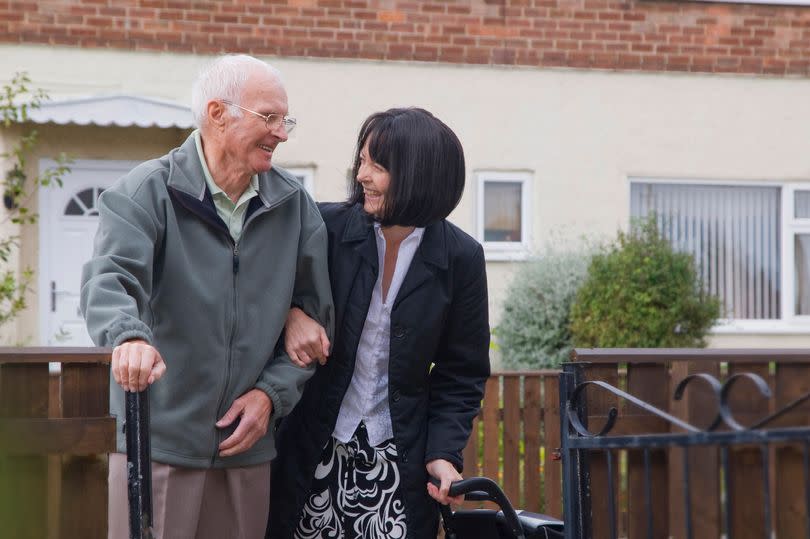How people with dementia can get a Blue Badge for disabled parking, according to experts

Getting a Blue Badge to be able to use disabled parking spaces may be essential for the quality of life of person with dementia or those caring for them. The debilitating condition often has a major impact on a person's mobility.
Sufferers may get disorientated and be a risk of falls, their reactions may be slow and put them and other road users in danger and they may no longer recognise road signs. It is worth remembering that a driver with a disabled person in their car would be entitled to park in a disabled space as long as they have the Blue Badge prominently displayed.
To help people understand how people with dementia can get a Blue Badge, experts at the Alzheimer's Society have put together a wealth of useful information. It includes hints and tips on how to make a successful application for a disabled parking badge and the eligibility criteria.
READ MORE Dementia scientists say four spices can boost brain health and limit Alzheimer's risk
READ MORE Dietician says taking 3p a day pill can stave off dementia and help memory
Why might people with dementia need Blue Badge for disabled parking?
People with dementia often experience mobility issues, depending on how advance the condition is. One of the early signs of dementia is problems with depth perception and visuo-spatial awareness which can make walking difficult or even dangerous, putting a person at risk of falling.
A lack of spatial awareness or a feeling of disorientation may result in sufferers walking slowly and needing to be guided. Getting in and out of a car may also be difficult, especially given that people with later-stage dementia often experience muscle weakness.
The cognitive problems that are part and parcel of dementia may result in an inability to recognise important signs or signals. Furthermore, the Alzheimer's Society warns that "slow processing skills and a lack of quick reaction to speed may be dangerous near roads".
Are people with dementia eligible for a Blue Badge?
People with dementia may be eligible for a disabled parking badge but it is not guaranteed as it would be for a person who is registered blind or someone who relies on a wheelchair. A person suffering from dementia may meet the criteria and therefore be entitled to use disabled parking spots as either a driver of passenger in another person's vehicle.
To support an application for a Blue Badge, it is essential to provide documentary evidence as to why a person requires the use of disabled parking. Information about medication, mobility issues, other medical conditions and anything related to the dementia diagnosis may all contribute to an application.
The Alzheimer's Society says: "Psychological distress is not defined in the Blue Badge guidance. If a person with dementia experiences symptoms such as fear, disorientation or confusion, which they find overwhelming, this may meet the criteria.
"If these symptoms impact them so severely that they put themselves or someone else at risk, that could also potentially meet the criteria.
"An example could be where someone with dementia becomes so disorientated during journeys (perhaps due to excessive noise or unfamiliar environments) that they are no longer aware of vehicles on the road, placing themselves in danger."
What evidence will help people with dementia get a Blue Badge?
The Alzheimer's Society has put together a list to help those suffering from dementia and their carers get a disabled parking badge. The charity has put together a checklist of items and documents that will help your online Blue Badge application. It includes:
Passport, birth certificate, driving licence or other proof of identity
Proof of address, such as an electricity bill or council tax bill
Documents relating to the patient's condition such as a diagnosis letter or correspondence with the medical professionals
National Insurance number
A recent digital photograph of the applicant, it does not have to be of passport quality, just a clear, well-lit picture of the person's face and shoulders in front of a plain light-coloured background
If the applicant gets PIP (Personal Independence Payment) then you will need to send the full award letter awarded for moving around
The decision letter from the Department for Work and Pensions confirming entitlement to a Blue Badge, if you have one
Information about what mobility aids the applicant uses
A letter from a medical professional in support of the Blue Badge application may also be useful
The NHS website has a great deal of information about how to live with Alzheimer's disease, how to cope with the condition and the extra help and support that is available.

 Yahoo News
Yahoo News 
